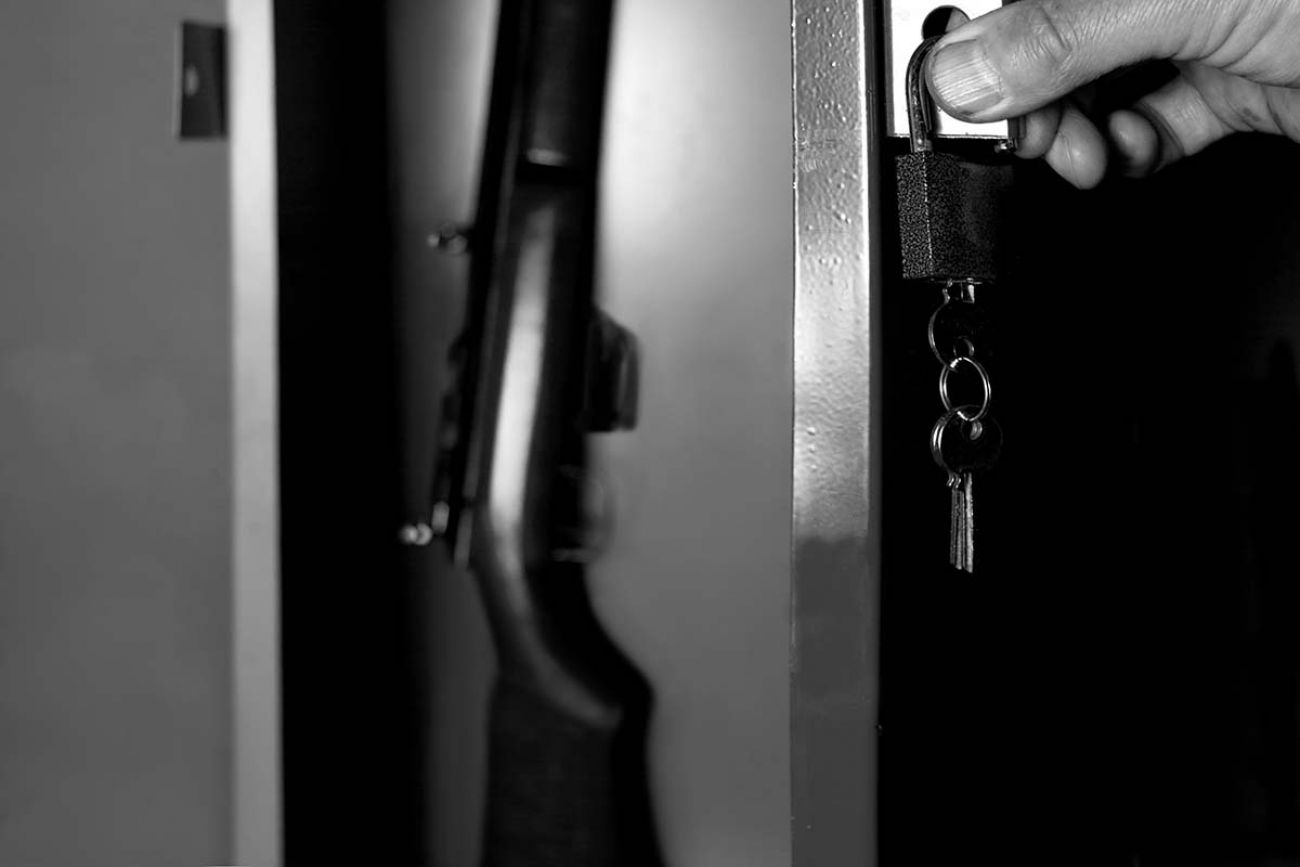Michigan gun reform: Democrats may consider safe storage laws. What research says

LANSING — Michigan Democrats may push for safe storage gun laws when they take control of the state Legislature in January.
Democrats, who will lead all branches of government for the first time in decades, have said gun reform is a priority, especially in the wake of last year’s shooting at Oxford High School and a rise of mass shootings nationwide: Of the 172 from 1966 and 2019, more than half have been since 2000 ,and 20 percent were from 2010 and 2019, according to The Violence Project, funded by the U.S. Justice Department.
State Sen. Rosemary Bayer, D-Beverly Hills, has told Bridge Michigan that Democrats will likely prioritize three areas of gun reform: universal background checks, safe storage laws with a focus on keeping guns out of the hands of children and “red flag” laws, which would allow someone’s gun to be taken away temporarily if they are deemed dangerous to themselves or others.
Related:
- Michigan gun reform: Democrats may pursue universal background checks. What research says
- Michigan gun reform: Democrats may pursue red-flag laws. What research says
Democrats contend tragedies like Oxford could be prevented if laws were in place to require safe storage to prevent child access to guns. Republicans have blocked the effort, arguing such measures could infringe on gun rights and instead proposing legislation to eliminate penalties for carrying pistols without a concealed weapons permit or registration.
Other states are also adopting gun reforms: In recent months, California prohibited gun sellers from marketing products to minors and restricted “ghost guns” — privately assembled guns that are not traceable — while Delaware strengthened background checks and regulated high-capacity magazines and Vermont banned guns from hospitals and the transfer of firearms between unlicensed people.
What happens after states pass these laws?
Bridge Michigan reviewed more than 20 studies about the impact of gun reform. but some scholars contend more time and data are needed to make conclusions. That’s because “research has been limited by lack of funding and data,” the U.S. Government Accountability Office noted in a 2017 report. From 1996 to 2019, federal law — pushed by the National Rifle Association — essentially banned the Centers for Disease Control and Prevention from funding gun violence research.
Here’s what studies say about safe storage laws.
What are they?
While often used interchangeably, safe storage laws and child access prevention laws are different, according to Allison Anderman, senior counsel and director of local policy at the Giffords Law Center to Prevent Gun Violence, a nonprofit advocating for gun control.
Safe storage laws often mandate that gun owners store their weapons in a safe manner, Anderman said. Child access prevention laws generally impose criminal penalties on gun owners if a child could — or does — have access to their guns and they “know or reasonably should know” of the possibility, according to the Giffords Law Center.
At least 30 states and Washington, D.C. have child access prevention laws, the Washington Post reported last year. Eight states, along with D.C., have safe storage laws mandating secure gun storage, according to pro-gun control group Everytown for Gun Safety.
What Democrats want to do in Michigan
Bayer told Bridge she is working with groups such as the Giffords Law Center and Brady’s Law Center to perfect the bill language. But proposals next year would be similar to the gun control bills introduced in the past years.
The most recent safe storage packages — Senate Bills 550-553 and House Bills 5066-5069 — would require gun owners to secure the gun in a locking device or keep it “in a location that a reasonable person would believe is secure” — language that is similar to the safe storage law Connecticut passed in 2019.
Gun owners who fail to do that would be punishable by up to five years in prison if a minor uses the gun to injure or kill anybody, including themselves. The bill would have applied to parents of the teen gunman who shot up Oxford High School.
The teen claims the gun used in the massacre was unlocked and a Christmas present from his parents. They face involuntary manslaughter charges on allegations they ignored warning signs that could have prevented the shooting.
“Firearm safety devices” would be exempt from the state’s 6-percent sales and use tax, reducing the financial burden on gun owners, according to the bills.
Do the laws work?
Most researchers found such laws reduce gun-related injuries, suicides or homicides, according to more than a dozen studies reviewed by Bridge.
But the degree of impact varies, and scholars have argued weak penalties and a lack of enforcement reduces the laws’ effectiveness.
First, most studies showed gun prevalence is linked to high risks of firearm-related deaths.
A 2020 study of school shooting data from the Washington Post concluded that “more permissive firearm laws and higher rates of gun ownership were associated with higher rates of both school shootings and active school shootings after controlling for critical covariates.”
Research has found that restricting access of children to guns helps reduce firearm suicides or gun-related deaths in general, researchers found:
- Child access prevention laws across 18 states were linked to “a modest reduction in suicide rates” among teenagers, according to a 2004 study that analyzed all youth suicides between 1976 and 2001.
- A September 2020 study, which analyzed suicide data, gun ownership and states’ implementation of child access prevention laws between 1991 and 2017, also associates safe storage laws with decreased adolescent firearm suicide.
- A 2019 study of firearm ownership and suicide data in 2015 estimated that safe storage laws or recommendations that parents store their guns safely could prevent “up to 32% of firearm deaths.”
But other studies found child access laws don’t always work. A 2000 study shows child access laws only helped significantly reduce unintentional firearm deaths in Florida — not the 14 other states with similar laws.
There are very few studies examining safe storage laws and school shooting deaths.
A 2016 study found little evidence suggesting child access prevention laws would reduce school shooting deaths by minors, but the study found the laws are associated with declines in gun carrying on campus and reports of firearm threats in school.
John Lott — founder of the nonprofit Crime Prevention Research Center, critic of gun control legislation and author of books including “More Guns, Less Crime,” — co-authored a 2001 study that found no evidence safe storage laws decrease juvenile accidental gun deaths or suicides.
Lott’s findings and methodology has been criticized by many researchers, but he has in turn argued those scholars’ methods have flaws.
“Safe-storage laws increase violent and property crimes against low-risk citizens with no observable offsetting benefit in terms of reduced accidents or suicides,” concluded the study from Lott, who is a Detroit native,
See what new members are saying about why they donated to Bridge Michigan:
- “In order for this information to be accurate and unbiased it must be underwritten by its readers, not by special interests.” - Larry S.
- “Not many other media sources report on the topics Bridge does.” - Susan B.
- “Your journalism is outstanding and rare these days.” - Mark S.
If you want to ensure the future of nonpartisan, nonprofit Michigan journalism, please become a member today. You, too, will be asked why you donated and maybe we'll feature your quote next time!




